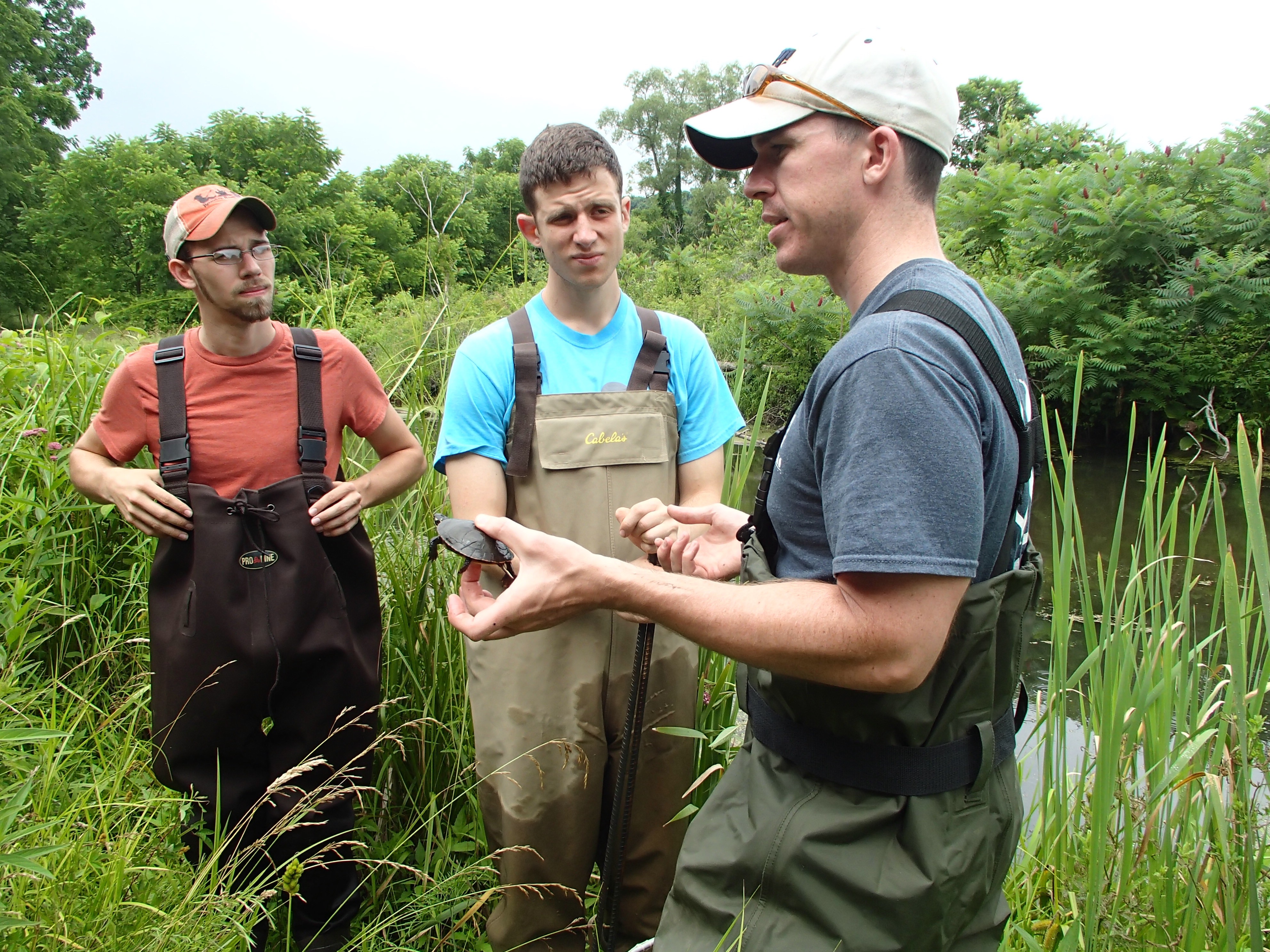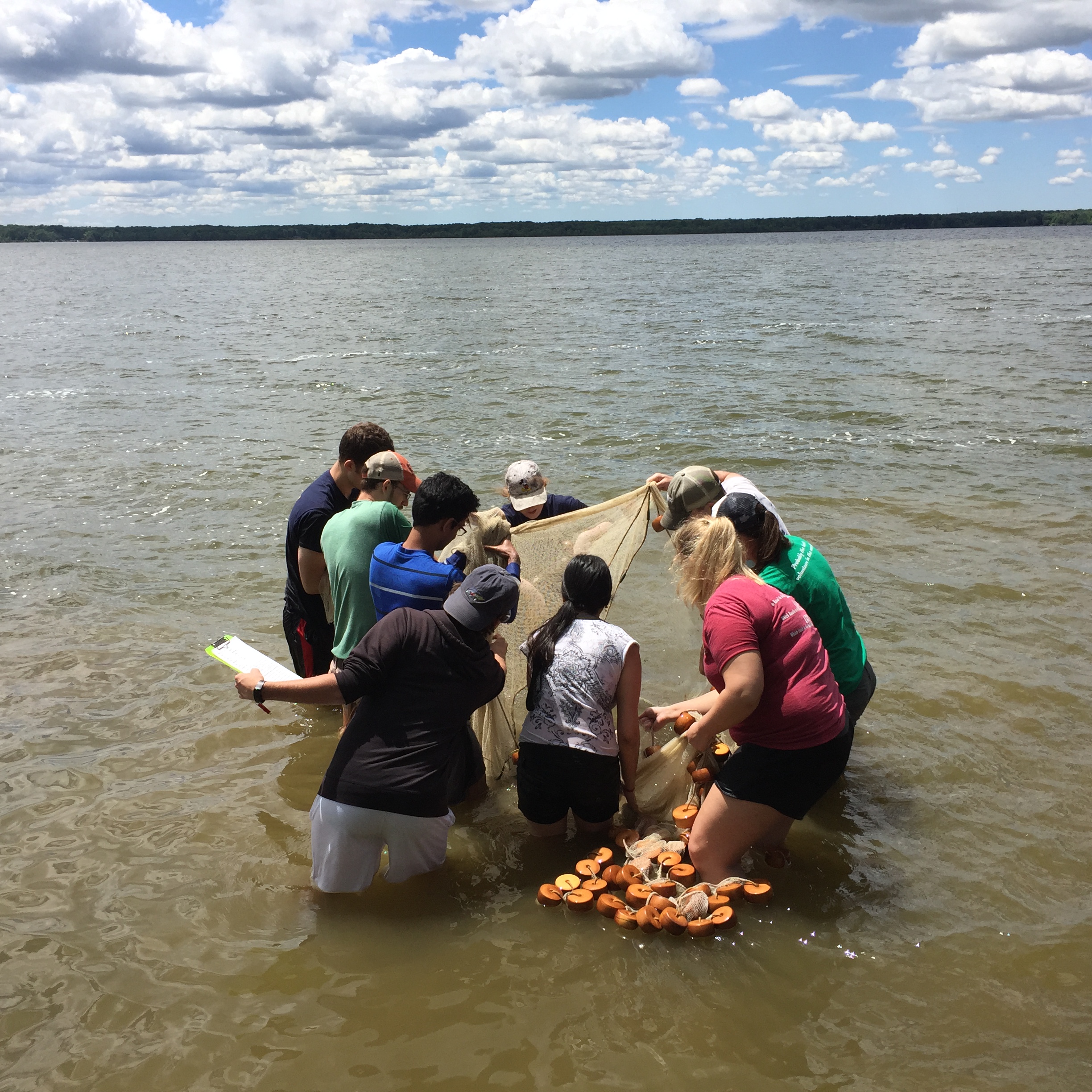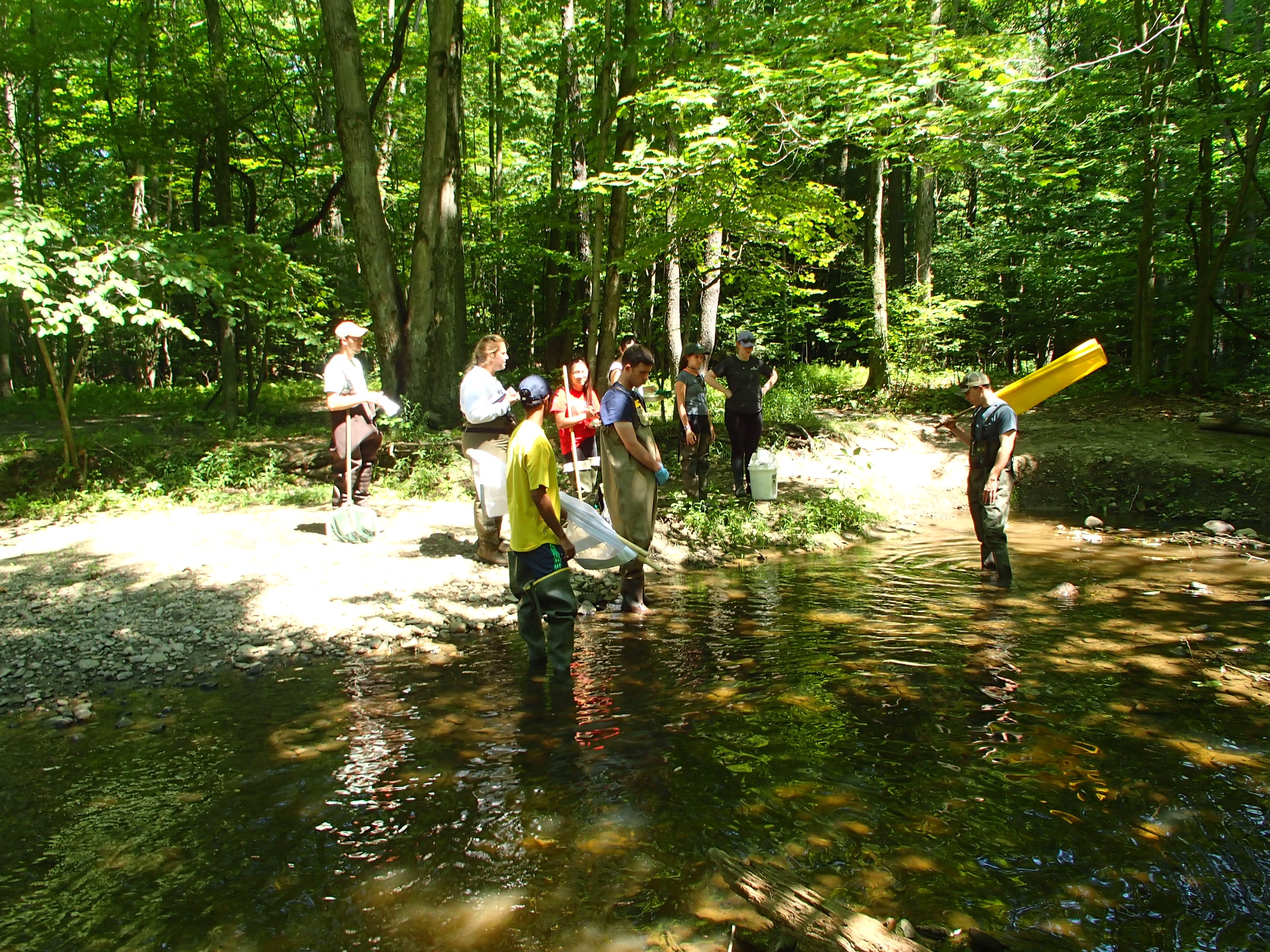26 June 2017
A scicommer leaves Washington (temporarily)
Posted by Shane Hanlon
By Shane M Hanlon

Catching turtles and talking about ranavirus. Credit – Aimee McLaughlin
I’m the Senior Specialist in AGU’s Sharing Science program. I giggle to myself on occasion when I hear it said aloud, not because of anything specific with the title or my duties therein, but because I am most comfortable with another title – scientist. I have a PhD in biology with a focus in disease ecology and ecotoxicology. I came into science communication and policy through experience, not education, and have truly enjoyed the life I’ve made for myself as a career scicommer. But, I’m still a scientist and require certain things that I associate with that title. I still collaborate on research projects. I still write manuscripts and act as a consultant to anyone who has a science question. And, I still teach.

Sometimes teaching involves getting in the mix. Credit – Aimee McLaughlin
Every summer I leave the humid policy jungle of DC for rural Pennsylvania, specifically for the tiny town of Linesville, located about two hours north of Pittsburgh, close to the PA/Ohio line. There I have the opportunity to return to my undergraduate Alma Mater and teach a three-week field course focused in disease ecology. I trade business casual for Chaco’s and chest waders. I admit, it’s partly a selfish endeavor that fulfills my need to return to the field each summer. However, I also value field-based education and its usefulness in exposing students to unfamiliar environments. I especially remember a student who, according to his own words, was a “city boy with no field experience.” Placed in an unfamiliar situation in a foreign environment, he thrived. He was my best student that summer and I was happy to recommend him to future employers.
I may be a unique case of a scicommer who still partakes in academic pursuits. I’d make the argument that more folks in my situation should pursue teaching opportunities (if possible – I’m fortunate that I have a lot of scheduling flexibility in my job). I have been able to take my communication/policy experience back to the classroom. My students are required to give a class-end presentation focused on the policy implications of a wildlife disease. Each morning a different student reads a popular news piece and talks about its merits (i.e. how well was it written) and conveys to the class main points for discussion. After lecture each day, a different student leads a discussion on a manuscript and comments on the readability of the paper as well as the scientific rigor. Over the course of the class the students complete four blogging assignments that forces them to communicate complex jargon in plain language. Communication & policy is woven into the course as an integral part of the conversation.
Over the next few weeks, I’ll be out in the field catching frogs and turtles, tromping through fields of goldenrod, mist netting birds, extracting marrow from raccoons, checking for (and hopefully finding!) ticks, and more. While these experiences seem distant from scicomm, I’ll be sure to incorporate what I’ve learn as a professional scicommer. And hopefully my students will come away with not only a greater understanding and appreciation of disease ecology, but will also come away as better communicators. That’s something that benefits everyone, no matter the field.

Being able to communicate the reason why you’re collecting a particular sample is important. Credit – Aimee McLaughlin
-Shane M Hanlon is a Senior Specialist in AGU’s Sharing Science program and is the instructor of Disease Ecology at the University of Pittsburgh’s Pymatuning Laboratory of Ecology










 The Plainspoken Scientist is the science communication blog of AGU’s Sharing Science program. With this blog, we wish to showcase creative and effective science communication via multiple mediums and modes.
The Plainspoken Scientist is the science communication blog of AGU’s Sharing Science program. With this blog, we wish to showcase creative and effective science communication via multiple mediums and modes.